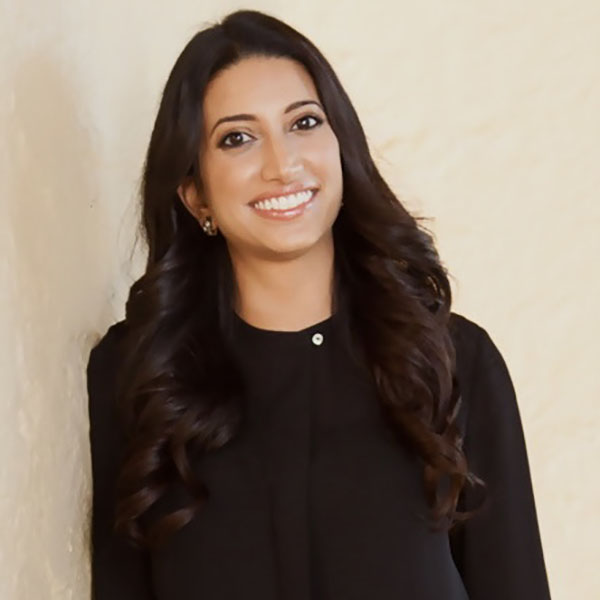Summer Job Diaries: Dependency Court Mediation Assistance Clinic Student Applies Conflict Resolution Lessons Learned as Mediator at Edmund D. Edelman Children's Court

Amal Sardesai '23 is a student in the Loyola Center for Conflict Resolution's Dependency Court Mediation Assistance Clinic (DC-MAC) and is involved with the mediation and conflict resolution of parties engaged in juvenile dependency cases in Los Angeles County. She draws on her background as a program manager for a federally-funded United States Agency for International Development (USAID) program in Afghanistan to be an effective mediator, providing a neutral and safe psychological space for her clients.
How did you land your summer job?
I was fortunate enough to have the opportunity to work at the Dependency Court Mediation Assistance Clinic (DC-MAC) within the Loyola Center for Conflict Resolution (LCCR) as it matched my background, experience and career objectives. I knew I wanted to work in the pro bono space and have always been interested in mediation as a career path. I was familiar with what the clinics offered at LLS and believed that LCCR, specifically the work that the clinic does with the Edelman Children’s Court, would be the perfect avenue to give back to my community and provide me with the opportunity to develop and practice mediation techniques. I applied directly through the center after which I was interviewed and accepted.
What is the most interesting part of your job?
Interacting with parties first-hand and reaching an agreement in one mediation session is one of the most rewarding aspects of working at DC-MAC. We meet our parties in the mornings, mediate with them one-on-one through the day, learning about their needs and interests, then present each party’s proposal to the other with the aim of attaining an arrangement that is in the best interests of the children and is acceptable to both. This agreement can serve as the parties' exit order from dependency court and is filed with the Family Law Court, which then serves as their ongoing court order. This is very unique as in most legal situations, you do not have the opportunity to see the result and impact of your efforts immediately.
What has been your most challenging assignment thus far?
Each party is different and as a mediator, we must adapt our technique to fit each one's communication style. Many of the individuals that we work with are what Bill Eddy, LCSW, Esq. calls High Conflict People (HCPs). “HCPs have a pattern of high-conflict behavior that increases conflict rather than reducing or resolving it,” he claims. So, it is imperative that we know how to work with such individuals effectively. At a particular mediation, one of my parties was an individual who would constantly speak in a loud and demeaning manner. I was able to implement the mediation techniques imparted and taught by the clinic and it was due to the formal training provided that we were able to reach an agreement on a number of issues between the parties.
What new legal skill have you acquired during your summer job?
As mediators, we must always maintain our neutrality. To be effective mediators it is imperative for us to provide the parties with a neutral and safe psychological space in order for them to reach an agreement. If a party feels that we are not being neutral, it can be detrimental to the mediation. However, working at DC-MAC, I was able to practice being neutral and refrain from letting my own preconceived notions affect the mediation process.
What bit of legal knowledge have you been able to display?
At the conclusion of the mediation, we draft the court-ordered forms for the parties. The process executed has enabled me to implement the skills garnered through Professor David King’s Legal Writing class. I was able to realize the importance of being both detail-oriented and duly conscious of the legal terms I utilize.
How has Loyola helped you map your career path?
Through LCCR, I gained the skills to work one-on-one with clients, adapting my communication skills to fit each unique situation and clients’ specific needs. Furthermore, the mentorship and guidance provided by the Clinic’s Director, Professor Sara Campos, solidified my desire to pursue mediation as a career path.